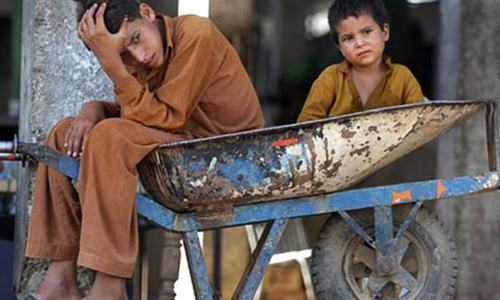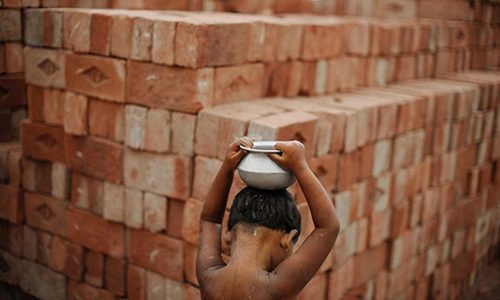NEW YORK: North Korea and Eritrea have the highest rates of enslaved people, said a global survey released on Thursday that focused on the roles of conflict and government repression in modern slavery.
The Central African nation of Burundi also has a high prevalence of slavery, according to the 2018 Global Slavery Index published by the human rights group Walk Free Foundation (WFF).
Read: Addressing Pakistan’s modern slavery problem
“Each of these three countries has state-sponsored forced labour, where their government puts its own people to work for its own benefit,” said Fiona David, research chair of Minderoo Foundation, which led the data collection.
More than 40 million people were enslaved around the world as of 2016, according to an estimate by the WFF and the International Labour Organisation.
India was home to the largest total number with an estimated 18.4m slaves among its population of 1.3 billion people, according to the WFF’s 2016 index.
China, Pakistan, Bangladesh and Uzbekistan rounded out the top five nations, accounting for about 58 per cent of people living in slavery globally, the WFF said at the time.
But North Korea had the highest percentage of its population enslaved, and that remains the case today.
“In North Korea, one in 10 people are in modern slavery with the clear majority forced to work by the state,” according to the 2018 Global Slavery Index.
Researchers interviewed 50 North Korean defectors living in South Korea who described long hours and inhumane conditions during mandatory unpaid labour for adults and children in agriculture, construction and road building.
The Eritrean government is “a repressive regime that abuses its conscription system to hold its citizens in forced labour for decades,” the report said.
Burundi’s government also imposes forced labour, according to the report, while groups including Human Rights Watch have implicated its security forces in murders and disappearances.
Other countries with the highest rates of modern slavery were the Central African Republic, Afghanistan, South Sudan and Pakistan.
Published in Dawn, July 20th, 2018















































